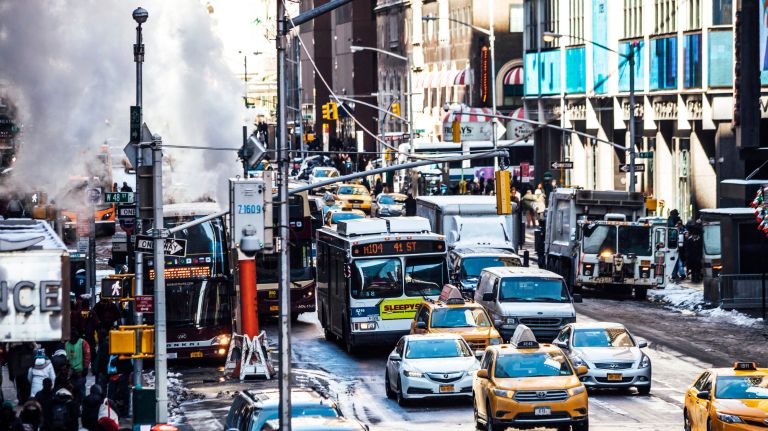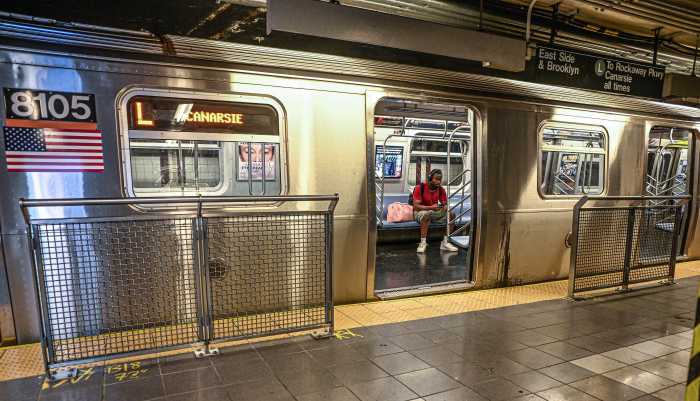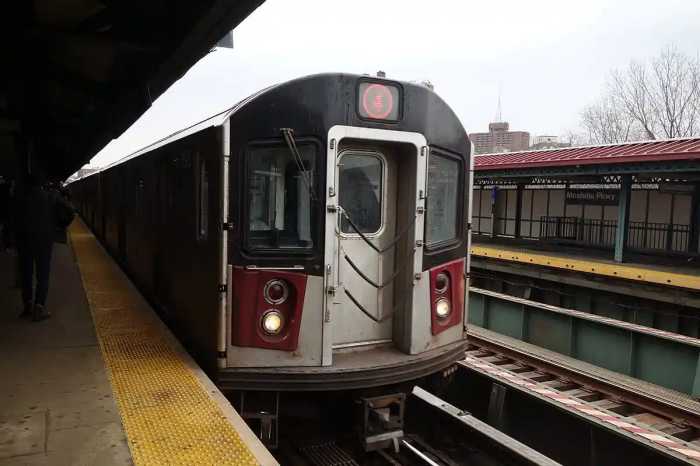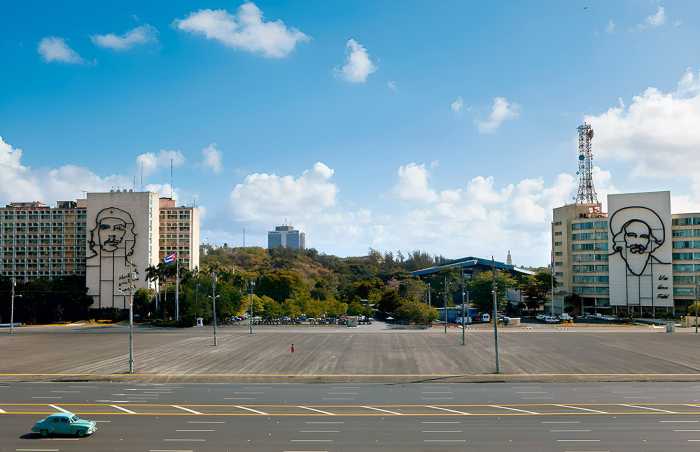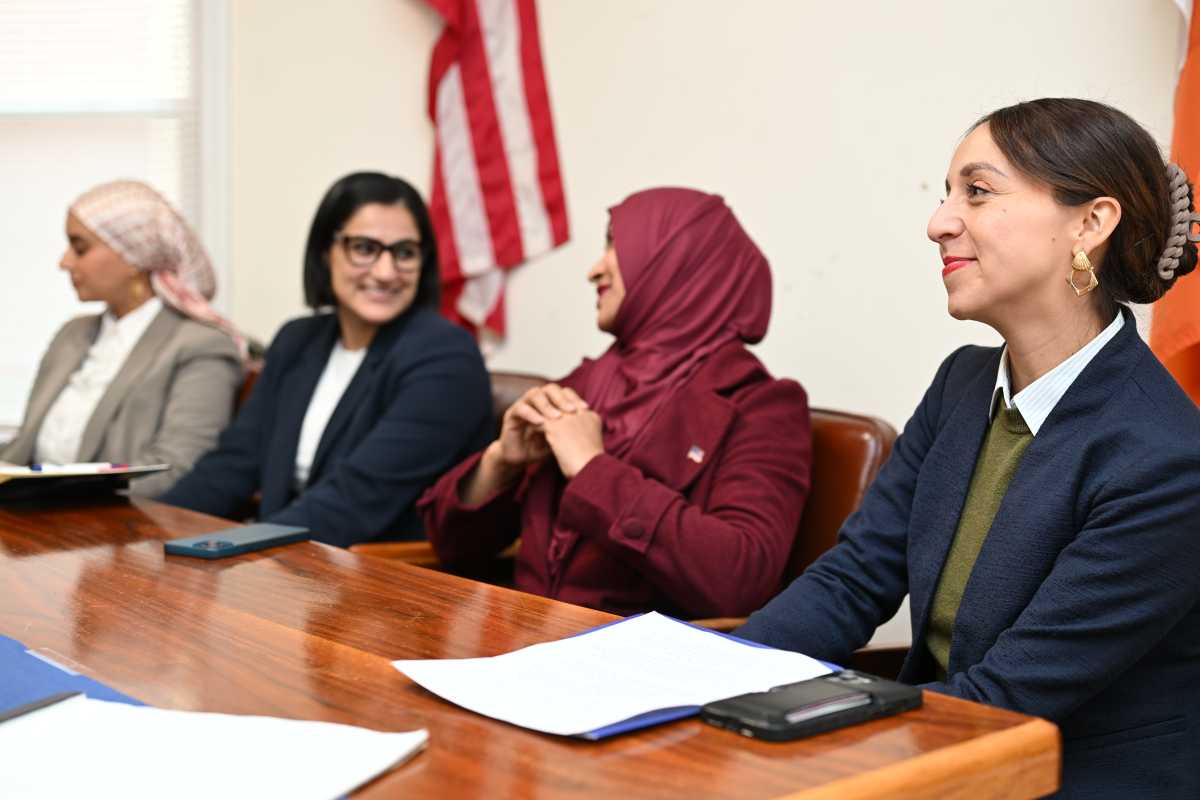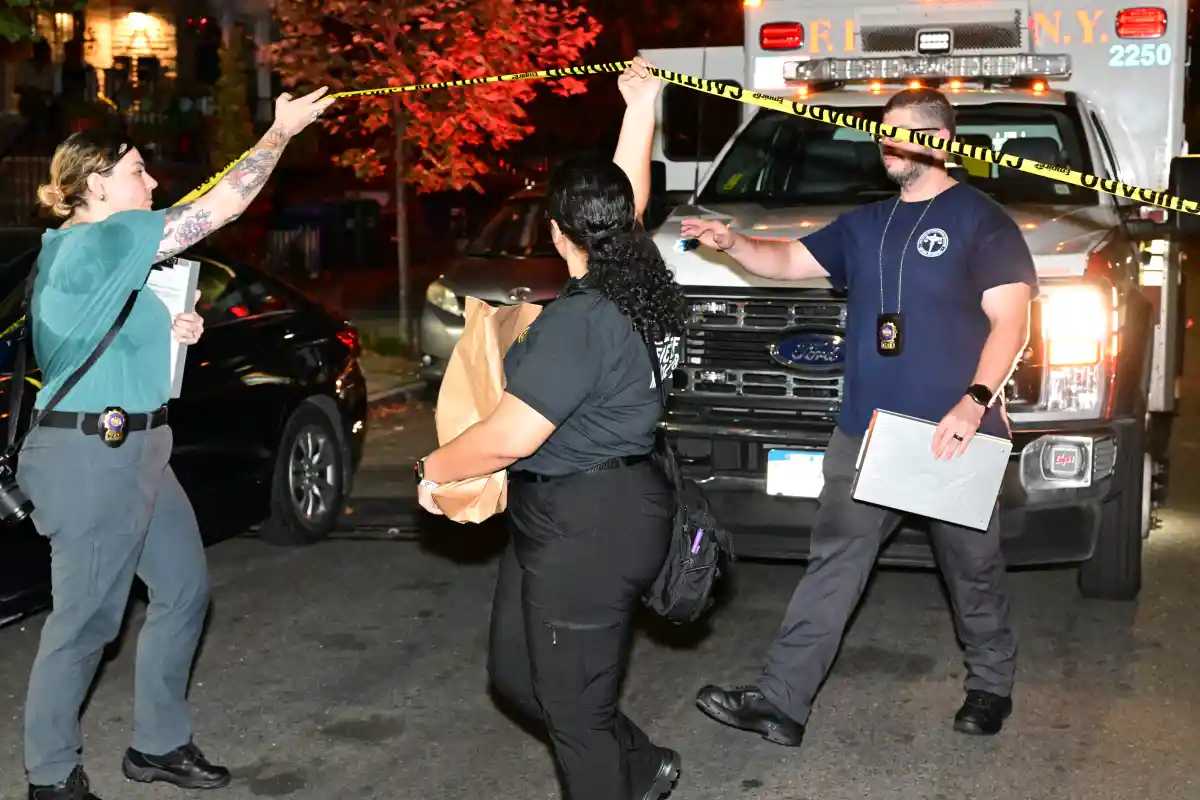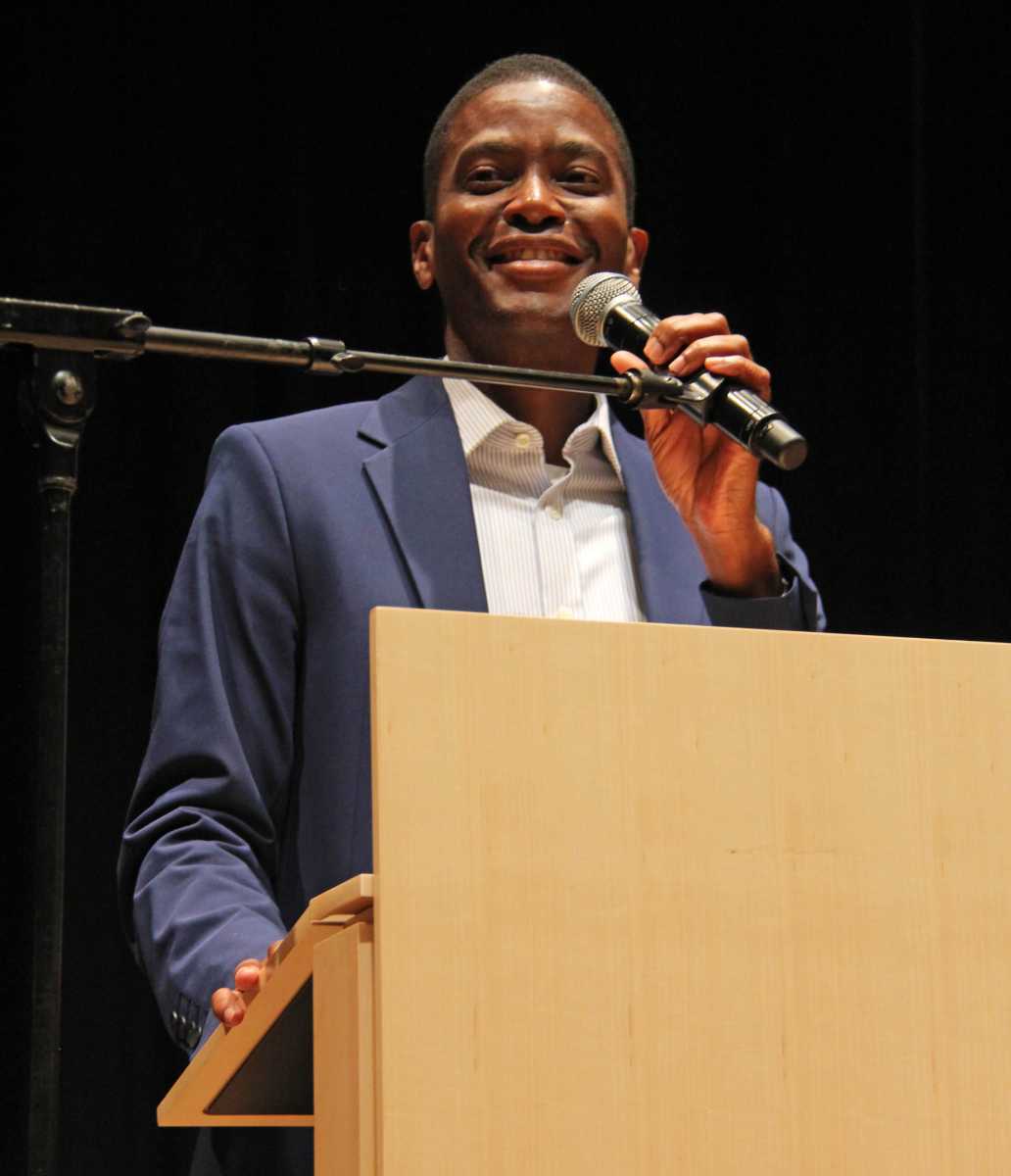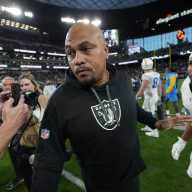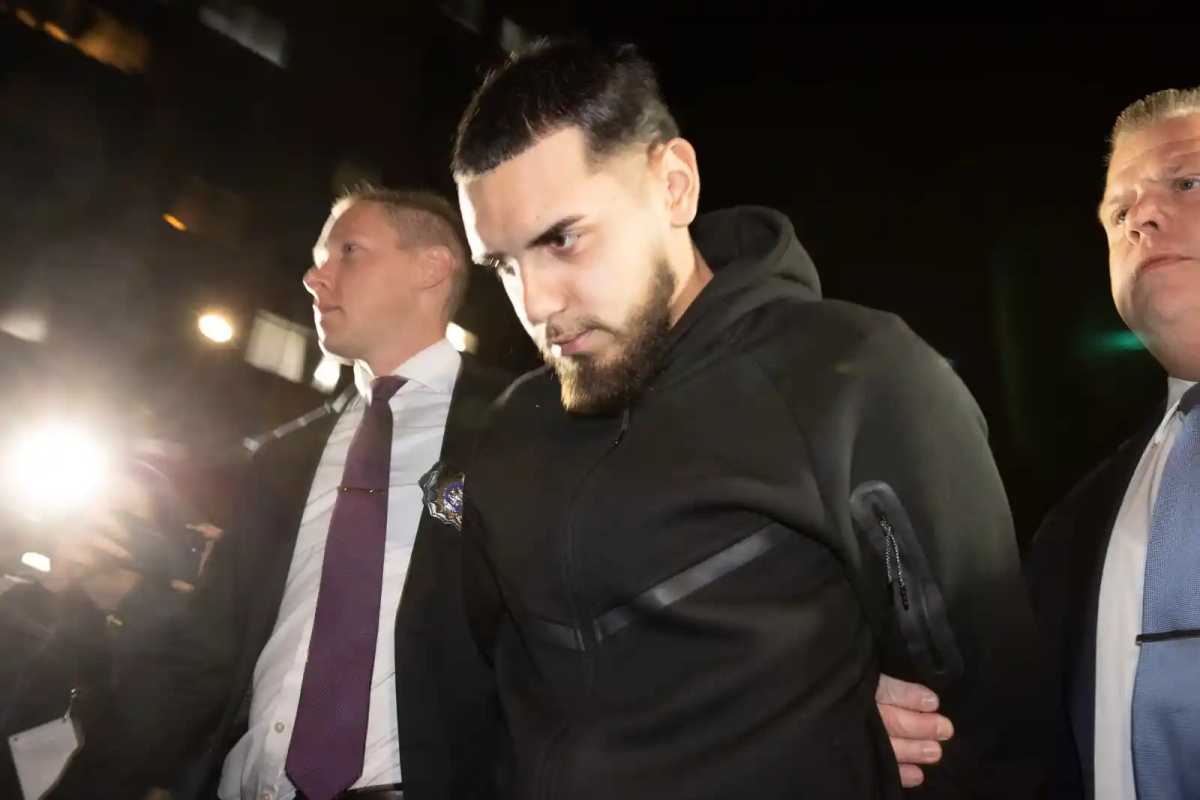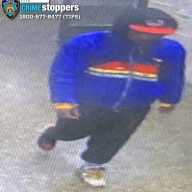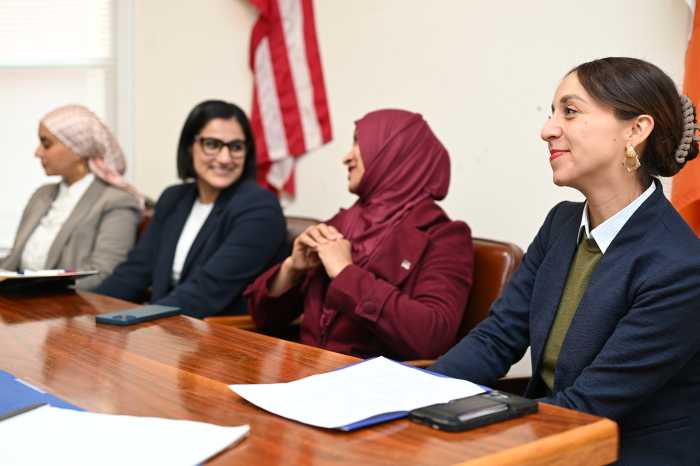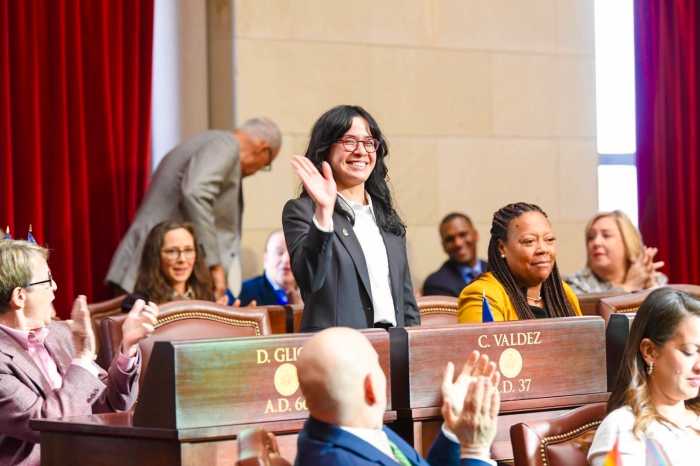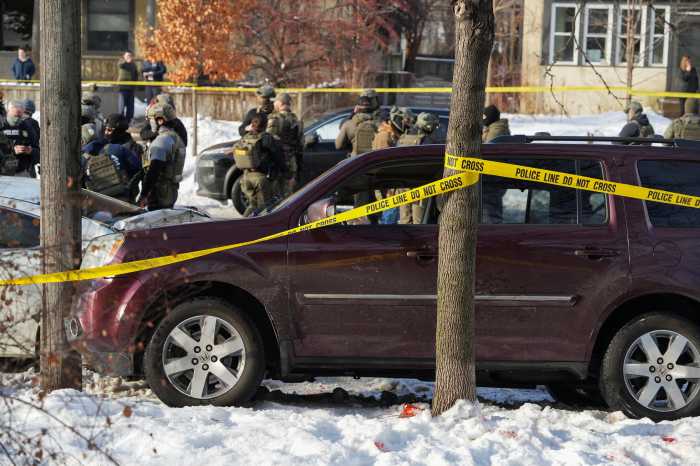
Eastern Queens leaders argued Sunday against congestion pricing proposals that they say burdens their constituents who have no other way of traveling into Manhattan.
State Assemb. David Weprin, who was joined by City Council members Barry Grodenchik and I. Daneek Miller in Long Island City, said plans that charge a toll for East River crossings could cost commuters who live in transit deserts an additional $3,000 a year in expenses. Those residents are already paying a lot just to get into Manhattan for work or other appointments and the assemblyman said he didn’t believe that the revenue that would be generated from the tolls would be enough to help improve transit conditions in the parts of Brooklyn and Queens that have no subways.
"We look at this as a backdoor way of tolling the free bridges, which have been free for over 100 years," Weprin said. "It’s the one of the only things in New York City that’s stayed free for over 100 years."
Grodenchik agreed and added that congestion pricing proposals would be tricky since the MTA has not provided any clear picture of their current or future costs for ongoing projects. He said they are already overspending on their subway construction projects, such as the 7 train expansion and Second Avenue subway, and they haven’t shown any significant interest in bringing improvements to Eastern Queens.
"We can do better. We need a plan from the MTA that’s real," he said.
Congestion pricing has been brought up several times as a method to help the MTA meet its goals. In 2008, the state Assembly did not approve a plan introduced by Mayor Michael Bloomberg.
Gov. Andrew Cuomo has promoted a congestion pricing plan over the last year, and has vocally pushed the state Legislature to make the proposal a top priority during the 2019 legislative session.
Weprin said he is open to other ways of generating revenue for the MTA, such as legalizing and taxing recreational marijuana use and a tax dedicated to the MTA’s capital needs. He said his preferred method would be a commuter tax on out-of-state and suburban commuters who come into the city for work.
"They are benefiting from police, sanitation, from transportation and they’re not paying their fair share," the assemblyman said.



